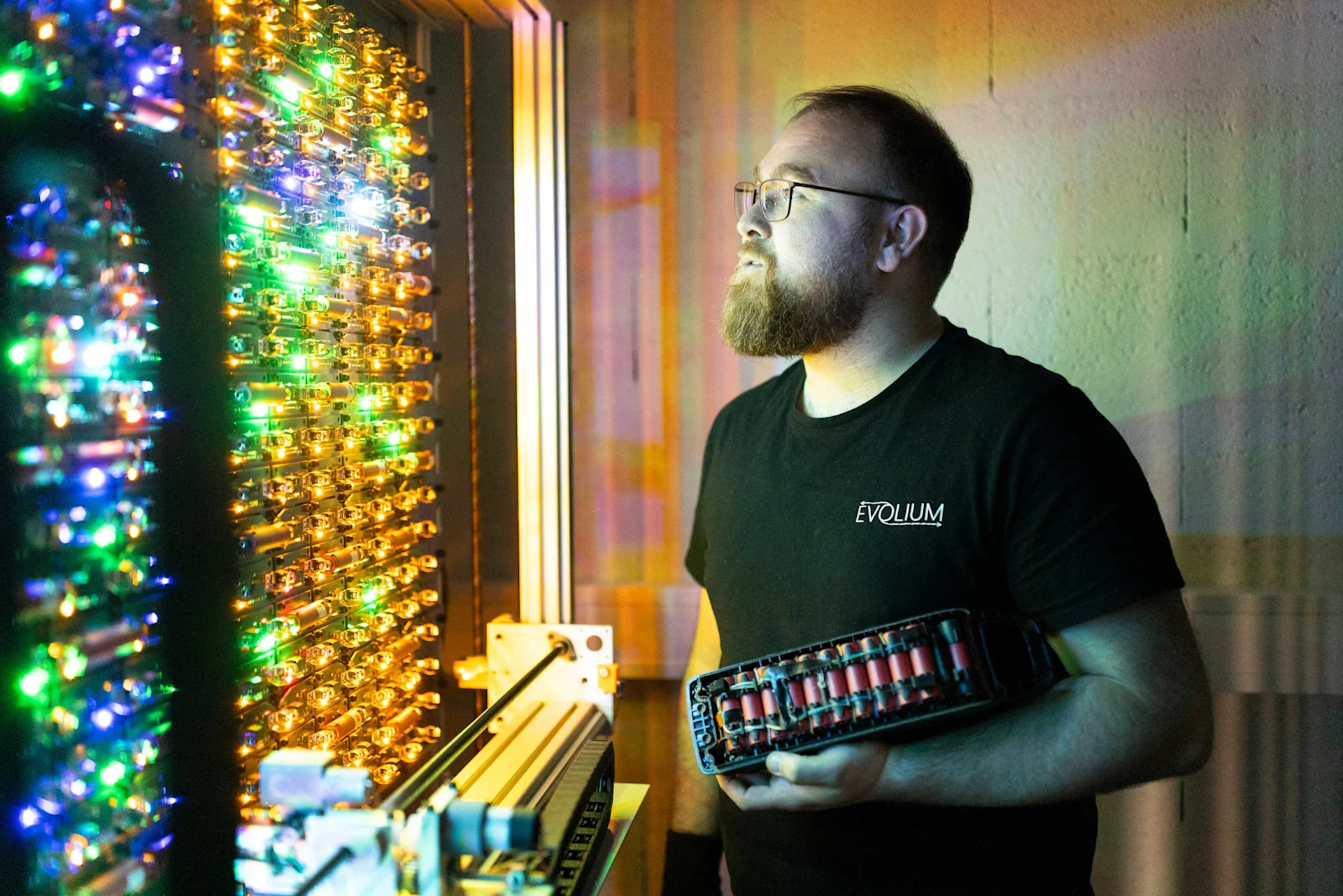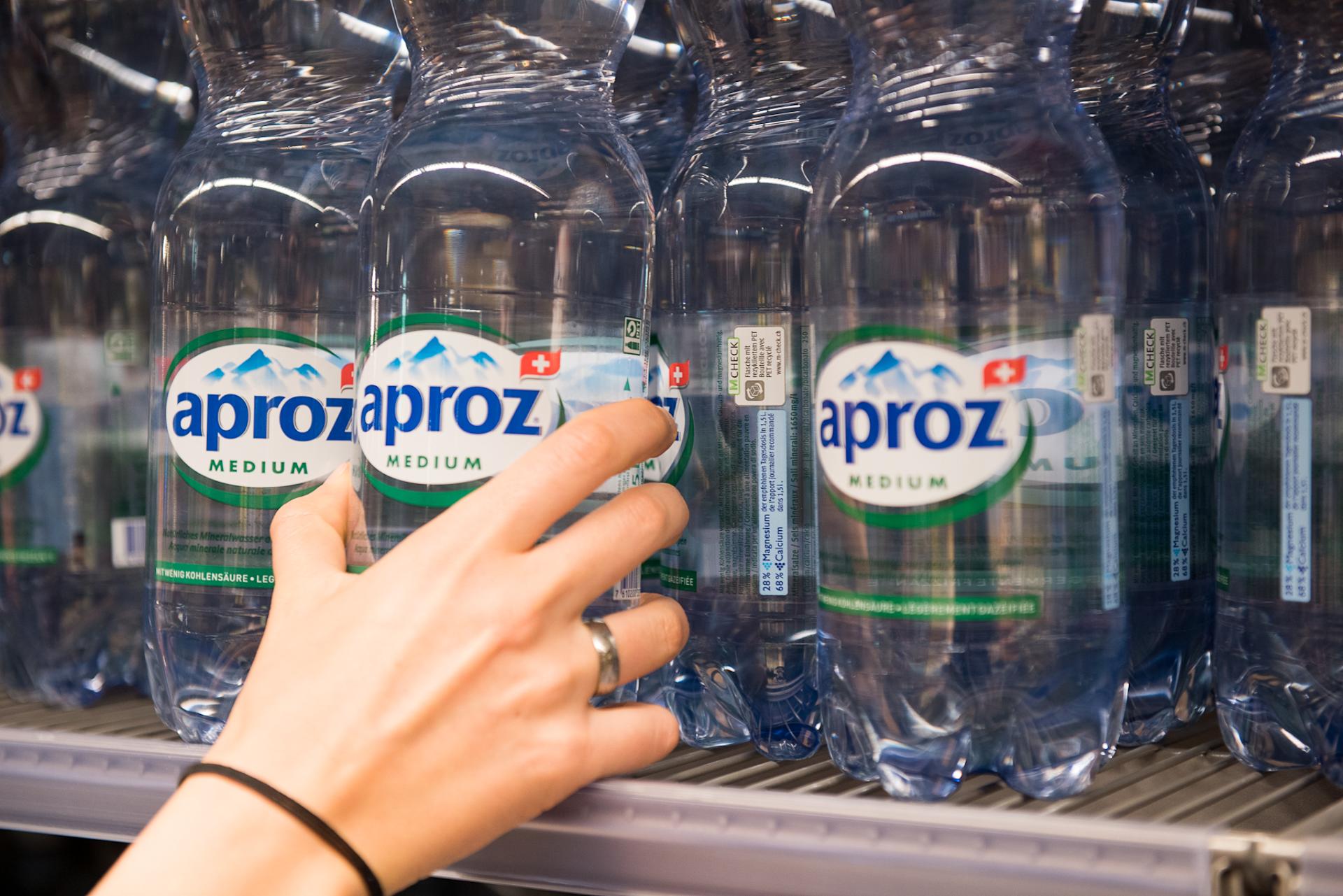
Migros Pioneer Fund
Rechargeable lithium batteries that last longer
With the support of the Migros Pioneer Fund, Evolium Technologies is extending the life of lithium batteries.
navigation

Packaging
We need to talk! About packaging. Like so many other things in life, this is not a black-and-white situation.
Packaging can really divide opinion. What kind of packaging is necessary? What kinds of packaging damage the environment the least? What happens to them when we recycle them? Packaging can actually be sustainable in the sense that it prevents food spoilage and therefore food waste.
Our goal is to only use packaging where it makes sense and to reuse it afterwards in a closed-loop recycling system.
Our four focus areas for making packaging more environmentally friendly:
Circularity: We place an emphasis on recycled materials when designing our environmentally-friendly packaging.
Reusable not single-use: Wherever it makes sense, we use reusable packaging as an alternative.
Reduced material use: Our guiding principle; the lighter the packaging the more sustainable it is.
Innovative packaging solutions: New materials and packaging solutions are constantly being tested.
Packaging a product is a science in itself. This is because every piece of packaging has to meet a wide range of requirements and is dependent on various factors.
Packaging should:
Protect the product (shelf life and hygiene)
Present information (origin, ingredients, best before date, etc.)
Present the product in an appealing way
Ensure the product is easy to transport logistically
Be practical to use
Be as environmentally friendly and recyclable as possible
Cost as little as possible
We are only satisfied if the packaging encompasses an optimal balance of all factors over its entire life cycle. Sometimes we simply omit the packaging completely. For example, organic bananas, organic pears, organic aubergines are just a few of the products that Migros sells loose and without plastic sleeves. We also prefer to use Natural Branding labels for selected products, which replace the small plastic sticker. This means we can present our products in an even more natural way with an even clearer conscience.
We are always working to reduce packaging materials or to optimize them ecologically. In doing so, we have reduced the amount of plastic used in many cases. Wherever possible, we reduce the amount of packaging used, we use recycled materials or we package our products in a more environmentally-friendly way. What does this mean specifically? For example, we are reducing the amount of plastic in the various packaging that we use for Anna's Best & M-Classic ready meals: thanks to the thinner tray with reinforced sides, we can save a total of 20 tonnes of plastic every year. The use of optimised packaging is not always obvious, for example, when recycled material or FSC cardboard from sustainable forestry is used.
Environmentally friendly means that:
we uses more sustainable materials, such as FSC-certified paper instead of conventional paper, or
we use other types of packaging, such as bags instead of cans.
A very large proportion of our packaging is already certified. However, this doesn't mean we have become complacent. We are also continuing to work on converting all paper and cardboard packaging used by Migros-owned industrial companies to recycled or FSC-certified materials over the next few years.
When searching for optimal packaging solutions that are as environmentally friendly as possible, we work with life cycle assessments. The life cycle assessments calculated by Migros take into account the entire life cycle of the packaging, from raw material extraction to disposal. In doing so, we assess the effects on the environment, such as the environmental impact of CO₂ or the acidification of soils.
Do you know what can go in the bin? With our tips and tricks, recycling not only becomes easy, you also save a lot of waste.